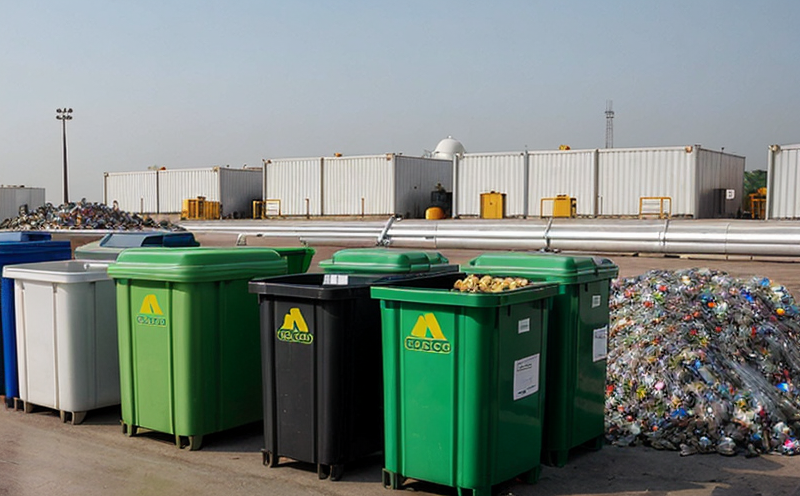
-
Chemical Safety and Certification-
Chemical Safety in Waste Management-
Certification for Waste Chemical Management
We provide comprehensive solutions designed to help our clients mitigate risks, enhance performance, and excel in key areas such as quality, health & safety, environmental sustainability, and social responsibility.
Discover
For many years, our organization has been operating successfully, boasting modern laboratories that meet international standards. These laboratories are equipped with the latest technology devices and equipment, and we have built a strong team of experienced and trained personnel to operate them.
DiscoverWelcome to Eurolab, your partner in pioneering solutions that encompass every facet of life. We are committed to delivering comprehensive Assurance, Testing, Inspection, and Certification services, empowering our global clientele with the ultimate confidence in their products and processes.
Discover
-
Chemical Safety and Certification-
Chemical Safety in Waste Management-
Certification for Waste Chemical ManagementCertification for waste chemical management is an essential aspect of ensuring that organizations comply with environmental regulations and adopt best practices in handling hazardous chemicals. Achieving certification demonstrates a company’s commitment to maintaining safety standards, minimizing environmental impact, and ensuring the well-being of its workers and the surrounding community. With the increasing scrutiny on environmental and chemical safety, obtaining certification not only enhances credibility but also reduces the risk of non-compliance, legal penalties, and environmental harm.
There are various certification programs and standards available to help organizations manage waste chemicals in a safe and sustainable manner. These certifications typically focus on the safe handling, storage, and disposal of hazardous chemicals, as well as ensuring that waste management systems are in line with local, national, and international regulations.
ISO 14001: Environmental Management Systems
RCRA Hazardous Waste Management Certification (Resource Conservation and Recovery Act)
OSHA Chemical Safety Certification
EPA’s Waste Management Certification (Environmental Protection Agency)
ISO 45001: Occupational Health and Safety Management Systems
Green Seal Certification for Waste Management
REACH (Registration, Evaluation, Authorisation, and Restriction of Chemicals) Certification
Legal Compliance
Environmental Protection
Worker Safety
Enhanced Reputation
Operational Efficiency
Market Competitiveness
Risk Management
Evaluate Current Practices
Implement Necessary Changes
Document Processes and Procedures
Employee Training
Submit for Certification
Maintain Certification
1. What is the most important certification for waste chemical management?
2. How long does it take to achieve certification?
3. Can small businesses achieve waste chemical management certification?
4. How often is certification renewed?
5. What happens if a company fails to maintain certification?
Achieving certification for waste chemical management demonstrates an organization's commitment to safety, environmental responsibility, and compliance with regulatory standards. By adhering to certification guidelines, businesses can reduce risks, improve operational efficiency, and enhance their reputation among stakeholders. Regular audits, training, and adherence to best practices are key to successfully obtaining and maintaining certification, ensuring the responsible management of hazardous chemicals throughout their lifecycle.

Environmental Impact Assessment
Environmental Impact Assessment: A Comprehensive Guide Environmental Impact Assessment (EIA) is a c...

Environmental Simulation Testing
Environmental Simulation Testing: A Comprehensive Guide In todays world, where technology is rapidl...

Aviation and Aerospace Testing
Aviation and Aerospace Testing: Ensuring Safety and Efficiency The aviation and aerospace industr...

Renewable Energy Testing and Standards
Renewable Energy Testing and Standards: Ensuring a Sustainable Future The world is rapidly transiti...

Cosmetic Product Testing
The Complex World of Cosmetic Product Testing The cosmetics industry is a multi-billion-dollar ma...

Energy and Sustainability Standards
In today’s rapidly evolving world, businesses face increasing pressure to meet global energy a...

MDR Testing and Compliance
MDR Testing and Compliance: A Comprehensive Guide The Medical Device Regulation (MDR) is a comprehe...

Fire Safety and Prevention Standards
Fire Safety and Prevention Standards: Protecting Lives and Property Fire safety and prevention stan...

IT and Data Center Certification
IT and Data Center Certification: Understanding the Importance and Benefits The field of Informatio...

Industrial Equipment Certification
Industrial equipment certification is a critical process that ensures industrial equipment meets spe...

Transportation and Logistics Certification
Transportation and Logistics Certification: A Comprehensive Guide The transportation and logistics ...

Healthcare and Medical Devices
The Evolution of Healthcare and Medical Devices: Trends, Innovations, and Challenges The healthcare...

Military Equipment Standards
Military Equipment Standards: Ensuring Effectiveness and Safety The use of military equipment is a ...

Product and Retail Standards
Product and Retail Standards: Ensuring Quality and Safety for Consumers In todays competitive marke...

Electrical and Electromagnetic Testing
Electrical and Electromagnetic Testing: A Comprehensive Guide Introduction Electrical and electrom...

Trade and Government Regulations
Trade and government regulations play a vital role in shaping the global economy. These regulations ...

Food Safety and Testing
Food Safety and Testing: Ensuring the Quality of Our Food As consumers, we expect our food to be sa...

Pressure Vessels and Installations Testing
Pressure Vessels and Installations Testing Pressure vessels are a critical component of various ind...

NEBS and Telecommunication Standards
Network Equipment Building System (NEBS) and Telecommunication Standards The Network Equipment Bu...

Construction and Engineering Compliance
Construction and Engineering Compliance: Ensuring Safety, Quality, and Regulatory Adherence In the ...

Automotive Compliance and Certification
Automotive Compliance and Certification: Ensuring Safety and Efficiency The automotive industry is ...

Battery Testing and Safety
Battery Testing and Safety: A Comprehensive Guide As technology continues to advance, battery-power...

Lighting and Optical Device Testing
Lighting and Optical Device Testing: Ensuring Performance and Safety Lighting and optical devices a...

Consumer Product Safety
Consumer Product Safety: Protecting Consumers from Harmful Products As a consumer, you have the rig...

Hospitality and Tourism Certification
Hospitality and Tourism Certification: Unlocking Opportunities in the Industry The hospitality and ...

Agricultural Equipment Certification
Agricultural equipment certification is a process that ensures agricultural machinery meets specific...

Electromechanical Safety Certification
Electromechanical Safety Certification: Ensuring Compliance and Protecting Lives In todays intercon...

Railway Industry Compliance
Railway Industry Compliance: Ensuring Safety and Efficiency The railway industry is a critical comp...

Chemical Safety and Certification
Chemical safety and certification are critical in ensuring the safe management of products and proce...

Pharmaceutical Compliance
Pharmaceutical compliance refers to the adherence of pharmaceutical companies and organizations to l...